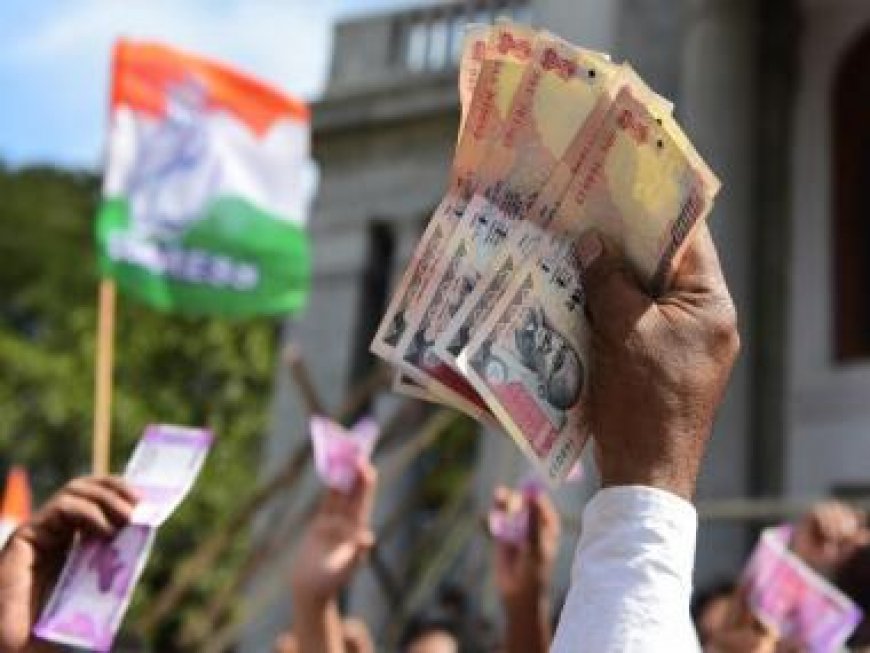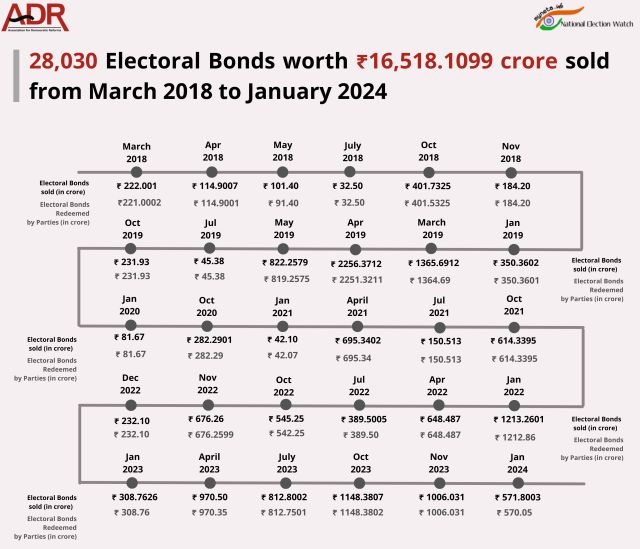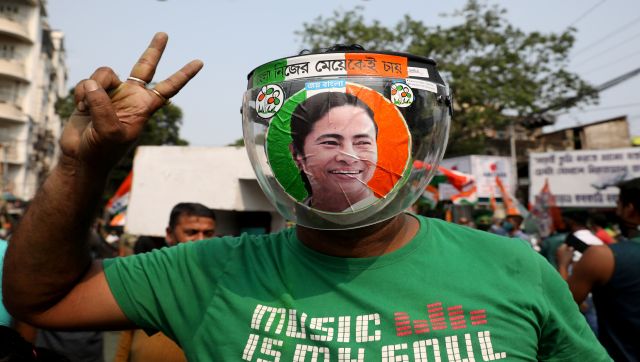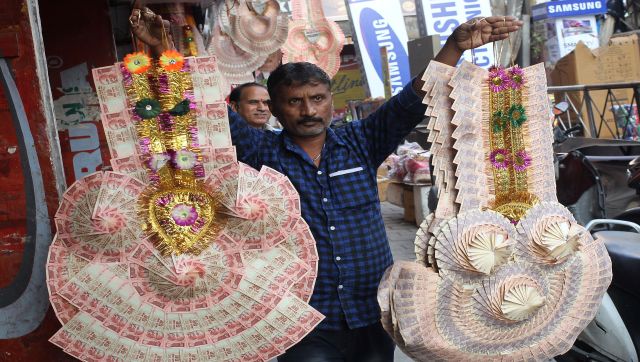SC verdict on electoral bonds: How much did the BJP earn? What about Congress, others?
SC verdict on electoral bonds: How much did the BJP earn? What about Congress, others?

Six years, 30 tranches, and Rs 16,518 crore. These are the most important figures to keep in mind when talking about electoral bonds.
The very same electoral bonds — a scheme introduced by the government in 2018 — that the Supreme Court has now struck down, calling unconstitutional and violative of the right to information and Article 19(1)(a).
We take a closer look at just how political parties benefitted from this scheme in the past seven years.
Electoral bonds – the preferred choice
When introduced by the Narendra Modi government, the electoral bond scheme was pitched as an alternative to cash donations and as a way to increase transparency in political funding. Under the system, donors, either a person or company, could buy the bonds from State Bank of India and donate to parties anonymously.
And it is behind this cloak of anonymity that donors have given Rs 16,518 crore. Minister of State in the finance ministry Pankaj Chaudhry in the just-concluded Budget session of Parliament said in a written reply, “The total value of Electoral Bonds purchased (Phase-I to Phase –XXX) from State Bank of India is about Rs 16,518 crores.”

In fact, a report published by the Association of Democratic Reforms (ADR), who was also one of the petitioners in the case before the Supreme Court, revealed that a majority of the funds received by political parties came from the electoral bond route. The report showed that between 2016-17 and 2021-22, the seven national and 24 regional parties received a total donation of Rs 9,188.35 crore from electoral bonds.
The report also revealed that of the Rs 16,437.635 crore that the 31 parties received in the past six years, a whopping 55.9 per cent was from electoral bonds, 28.07 per cent was received from the corporate sector and 16.03 per cent from other sources, clearly showing that electoral bonds were the preferred choice of making political donations.
The big electoral bond winner
Data has shown that of all political parties, the BJP was the biggest recipient of electoral bond donations. As per an audited report by the ruling party, it received nearly Rs 1,300 crore through electoral bonds in 2022-23. This is seven times more than what the Congress, the main Opposition party, got in the same period through the same route.
Noted journalist Arvind Gunasekar on X published a breakdown of BJP’s electoral bonds earnings and the figures were indeed high.
BJP’s donations via electoral bonds:
2018: ₹210 crore
2019: ₹1,450 crore
2020: ₹2,555 crore
2021: ₹22.38 crore
2022: ₹1,033 crore
2023: ₹ 1,294 croreTotal (FY 2018 – 2023): ₹6,564 crore
— Arvind Gunasekar (@arvindgunasekar) February 15, 2024
In fact, the BJP’s earnings from electoral bonds has always been high. According to an ADR report, between 2018 and 2023, more than 52 per cent of BJP’s total donations came from electoral bonds worth Rs 5,271.9751 crore.
Other parties and electoral bonds
But it’s not just the BJP that has benefited from electoral bonds. In the previous years, the Congress received Rs 952 crore from the electoral bond route. In 2022-2023, the Grand Old Party earned Rs 171 crore from electoral bonds, which was down from Rs 236 crore in 2021-22.
Regional parties are also big recipients of electoral bonds funds. Between 2018 and 2022, Mamata Banerjee-led Trinamool Congress earned Rs 767 crore from electoral bonds.

The Biju Janata Dal is another regional party that has made big gains through electoral bonds. In the past, the Naveen Patnaik-led government received Rs 622 crore. In 2022-23 alone, the party earned Rs 152 crore through this method. In fact, a report in The Print said that all of the party’s donations in that year came through the electoral bond route.
The DMK, which is in power in Tamil Nadu since 2021, declared contributions of Rs 431.50 crore in three years from 2019-2020 to 2021-2022. And in 2022-2023, the party received Rs 185 crore from donors via electoral bonds.
In the fiscal year 2022-23, the Bharat Rashtra Samithi received a whopping 71 per cent of its donations from electoral bonds — amounting to Rs 529 crore.
The Aam Aadmi Party (AAP), now a national party, also saw a notable increase in electoral bond receipts from Rs 25.1 crore in 2021-22 to Rs 36.4 crore in 2022-23.

Parties that don’t accept electoral bonds
As per the Centre’s rule on electoral bonds, only political parties registered under Section 29A of the Representation of the People Act, 1951 and which secured not less than one per cent of votes polled in the last general election to the House of the People or the Legislative Assembly of the State, are eligible to receive electoral bonds.
However, since its inception, the Communist Party of India-Marxist (CPI-M) did not accept any donations through this method. In fact, the CPI-M was one of the petitioners in the case before the Supreme Court.
After the Supreme Court’s verdict, CPI-M general secretary Sitaram Yechury said: “We welcome this. We are a petitioner, the only political party that had the locus standi to argue against electoral bonds. We are the only party that did not express any electoral bond as a matter of principle because we consider the electoral bonds scheme as a legalisation of political corruption and this had to be ended.”
With inputs from agencies
What's Your Reaction?



























































